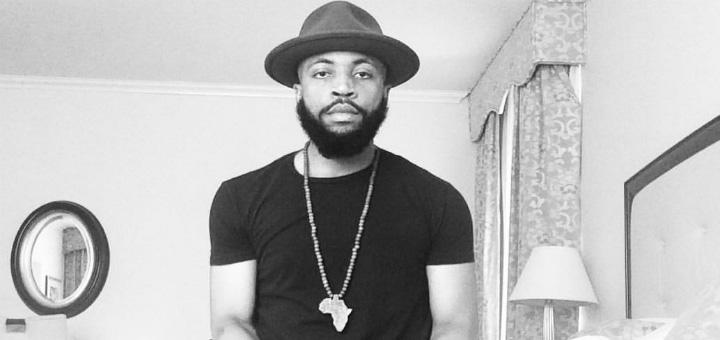Black Obituary Project seeks to challenge perceptions of police shooting victims

In the United States, Black males are nearly three times as likely to be killed in encounters with the police than their white counterparts. That’s according to a new peer-reviewed study published in the American Journal of Public Health which looked at more than 2200 death certificates from fatal police encounters over a four-year period.
The period of study, from 2010 to 2014, was before broadcasting via Facebook Live, cell phone videos spread on Twitter, and other internet tools became common forms of documentation of police shootings of African-Americans. But accountability can be elusive, even in cases with strong video evidence. FSRN’s Lena Nozizwe reports police shootings have been devastating to a New York-based writer who is bringing awareness to police shootings by collecting untimely obituaries.
“CRSH: troubled, tenacious and creative CRSH, formerly known as Brandon White, age unknown, was unarmed when shot and killed in conflict with local police officers. From birth, CRSH was a lover of the world and he used his perceptions of it to create his own short stories, comic books, drawings, paintings and songs as a young child, all while receiving a 4.0 GPA throughout his scholastic journey.”
“Brandon Keith Reed, also known as Habit Blcx, 28, was unarmed when shot and killed in conflict with local police officers. The artist, the inspirational speaker, the charismatic social butterfly, with an infectious zest for life, was loved by many near and far.”
The two subjects of these obituaries have a lot in common. They are African-American. They are men in their 20s. They are college-educated. And they are alive.
They are reading their own requiems – deeply personal narratives that are part of the Black Obituary Project, a creation of Harlem-based writer Ja’han Jones.
“Ja’han Elliot Jones, age 24, was unarmed when shot and killed in conflict with local police officers. Jones, an enigmatic, thoughtful man was to many juncture of party and poise,” Jones reads.
He describes it as a collaborative art project. It debuted this past September online.
“It is a collection, a growing collection, of self-written, pre-written obituaries intended to illustrate the indiscriminate nature of police violence,” explains Jones. “It’s intended to convey that it affects all of us: the righteous, the ratchet, the young, the old, and all in between.”

Brendon Reed (Photo credit: Lena Nozizwe)
Scroll through the pages of blackobituaryproject.com and you’ll find dozens and dozens of photos of vibrant African-American men and women that link to their obituaries. Some are in graduation robes, some pose with their children, many are smiling like twenty-something Brandon Reed.
“For me, at least, there’s a piece of me that thinks, well, that wouldn’t happen to me or anyone I know. But the truth is that it could happen to anyone, including yourself,” Reed says. “So, me writing it really put it into perspective, like this could actually be me.”

Brandon “CRSH” White. (Photo credit: Lena Nozizwe)
Writing the obituary was also sobering for CRSH. So was seeing the animated faces on the site: “These people don’t look like quote unquote criminals. It made it a reality that this could happen to me. I don’t have to be a criminal. I could be a good standing citizen, a positive person in the community. I can be a doctor or lawyer or work at a retail store or I can be an athlete. I don’t have to be doing any crimes. I could still be targeted.”
That’s part of the point says Black Obituary Project founder Jones. He says it’s a counter narrative to stories often publicized in the wake of shootings involving black people.
“Frequently, what will happen the stories involve how hulking the Black man was or how boisterous the Black woman was or how mannish the Black boy looked at the time of his death. We find this to be incredibly dehumanizing,” Jones explains. “It’s deeply unsettling and so this project is designed to grant us an opportunity to tell our own stories on our own terms.”
Last year, the Washington Post began tracking police shootings in real-time. An analysis of their data, published last summer, found that black Americans are 2.5 times more likely than white Americans to be shot and killed by police officers.
Of all of the cell phone or police videos of fatal encounters with law enforcement in recent years, Black Obituary Project founder Jones says he is especially haunted by the shooting of Alton Sterling.
“You really do see him pass. You see the life being taken from him. I remember the moment I actually saw the video,” Jones recalls. “It will stick with me forever. It was traumatizing, absolutely traumatizing.”
However critics of the way the Black Obituary Project has put the spotlight on police killings have said that African-Americans should be more concerned about being killed by another black person.
Again, Jones: “One of the criticisms that we have received is one that’s quite familiar to us, and that is the suggestion that our efforts better would be served trying to combat ‘Black on Black crime,’ which is a term I reject on its face. The frustration, of course, is that this fits neatly into the narrative that is some sort of innate criminality and dysfunction in blackness that needs to be righted.”
He says his project is part of his effort to right wrongs, especially when it comes to perceptions. He has plans to expand the footprint of his venture, including bringing it to the real world.
In whatever form, he promises that the Black Obituary Project will never die.











